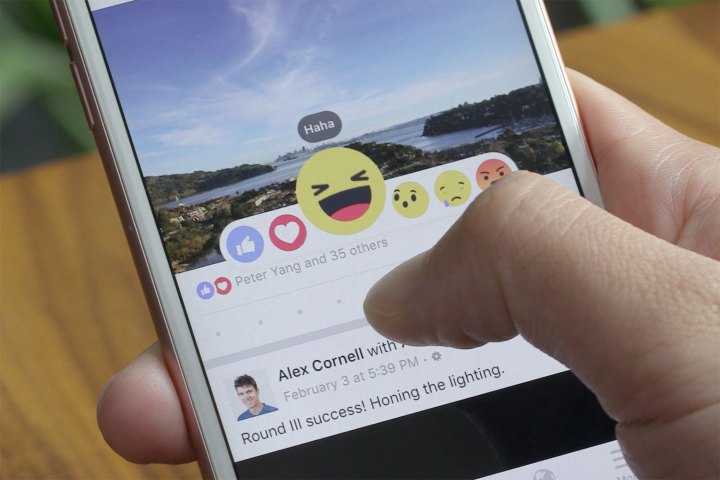

The agency examined the top eight active news publishers on Facebook, specifically looking at the top three posts (ranked by the number of total reactions) for CNN, Fox News, The Huffington Post, The New York Times, USA Today, The Wall Street Journal, The Washington Post, and Yahoo News. The study spanned the week-long period between March 14, 2016, to March 20, 2016, and met with some pretty encouraging results — for publishers, at least.
As it turns out, Facebookers love to love things; 54 percent of all nonlike reactions were loves, and users were actually least likely to use the negative reactions (angry and sad). After all, when you’re spending as much time as many of us do on Facebook, you’re better off opting towards more positive emotions.
That said, most of the outlets Fractl examined were quite polarizing. The agency found that there was a strong correlation between number of likes and number of nonlike reactions across publishers. While Fox News, The Huffington Post, and CNN had the most average likes per top-performing post (in that order); they also had the highest average number of nonlike reactions.

Interestingly enough, Fox News boasted the angriest followers, with 21 percent of nonlike reactions logged as “Angry.” USA Today, on the other hand, had the least angry followers. But it was New York Times readers who were the most loving. Fox News audiences were also the least likely to be impressed — they utilized the “Wow” reaction the most sparingly.

Across the board, users least frequently reacted with “Sad,” again, likely because publishers would rather share positive emotion-generating news. But in the case of the Brussels attacks (March 22), readers responded emotionally. Again, Fox News followers reacted most angrily, whereas Huffington Post readers were saddest. CNN followers, curiously, used “Wow” most often.
Of course, despite Facebook’s best efforts, it still hasn’t catalogued the myriad of emotions that our modern news cycle tends to elicit. But at the very least, here’s a snapshot of how we’re reacting.
Editors' Recommendations
- Facebook vows to restrict news access in Canada
- Facebook’s first-ever smartwatch reportedly looks like this
- How to make a Facebook avatar
- How to create a poll on Facebook
- Elon Musk advises people to ditch Facebook and use Signal


